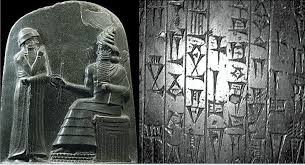
The Hammurabi code, is a set of laws that were used during the reign of King Hammurabi in the Babylonian kingdom. The legal code is written on a stone tablet that exists up to now. It regulated the conduct of the people and prescribed the fines and punishments for civil litigations. The spirit of the law is based on the principle of “an eye for an eye”. For example, one of the laws states that,
“If a builder builds a house for someone, and does not construct it properly, and the house which he built falls in and kills its owner, then that builder shall be put to death. If it kills his son, his son shall also be put to death, if it falls and damages his goods, he shall compensate the owner”
The key thing is that the law ensured that the builders had a strong incentive to do a good job. In other words, they had ‘skin in the game’. They suffered the downside of not doing a good job.
Many small-scale traders understand this concept very well. If the lady who cooks githeri in your neighborhood sells rotten githeri, she will be out of business within a very short time. This is because she will either incur the wrath of an angry customer or word will go round that her githeri is rotten and sooner rather than later no one will buy from her.
In the bible, a clear depiction of skin in the game is seen in the battle of the prophets at mount Carmel. Prophet Elijah and the prophets of Baal go into a contest to see who is the real deal between God and Baal. Who will send fire down from heaven to burn the sacrifice of a bull? God or Baal?
The Baal prophets go first. They pray and perform their rituals all day but nothing happens. Prophet Elijah, takes the stage, to spice things up and add a little drama, he instructs that the sacrifice be submerged in water. He then prays and God sends fire from heaven which consumes the sacrifice and everything around it. The Baal prophets are killed.
In those days, prophets had skin in the game. For God had skin in the game that he sent his only begotten son.
The upside of skin in the game is that, to ensure she remains in the game of business, mama githeri will cook good food and offer excellent services. She develops empathy for her customer. Which is a win for everyone.
But what happens when there is no skin in the game. When you know that you won’t suffer any consequences for doing a bad job? You become thoughtless and irresponsible. This is what happens in large corporations and government, especially at the “head office”.
Many bureaucrats never get to suffer the negative consequences of the policy decisions that they make. When we remove responsibility and accountability, we remain with a system that lacks empathy and is only focused on short-term wins. This can be seen in the health and education sector where they make reckless and unilateral policies that end up harming citizens.
Many of these policy makers are like the farmer in Muranga who sprays his fruits with poisonous chemicals to fasten their ripening and make a quick sale. Because he does not eat the fruits or sell to the locals but to brokers in Nairobi, he does not care about the harm he will cause to the consumer.
What’s my point?
No one, knowing that he can get away with stupidity, can take the trouble to be wise.
Decentralize. Localize. Involve people on the ground!
Life is life
Fabio